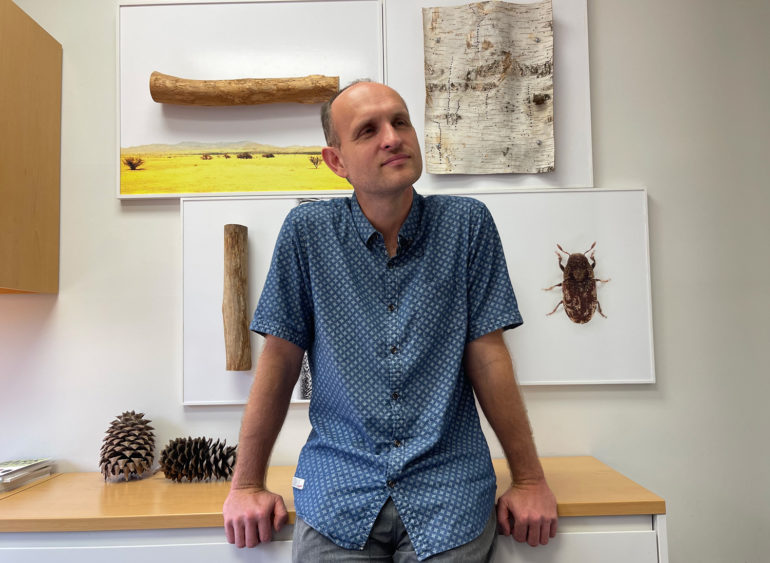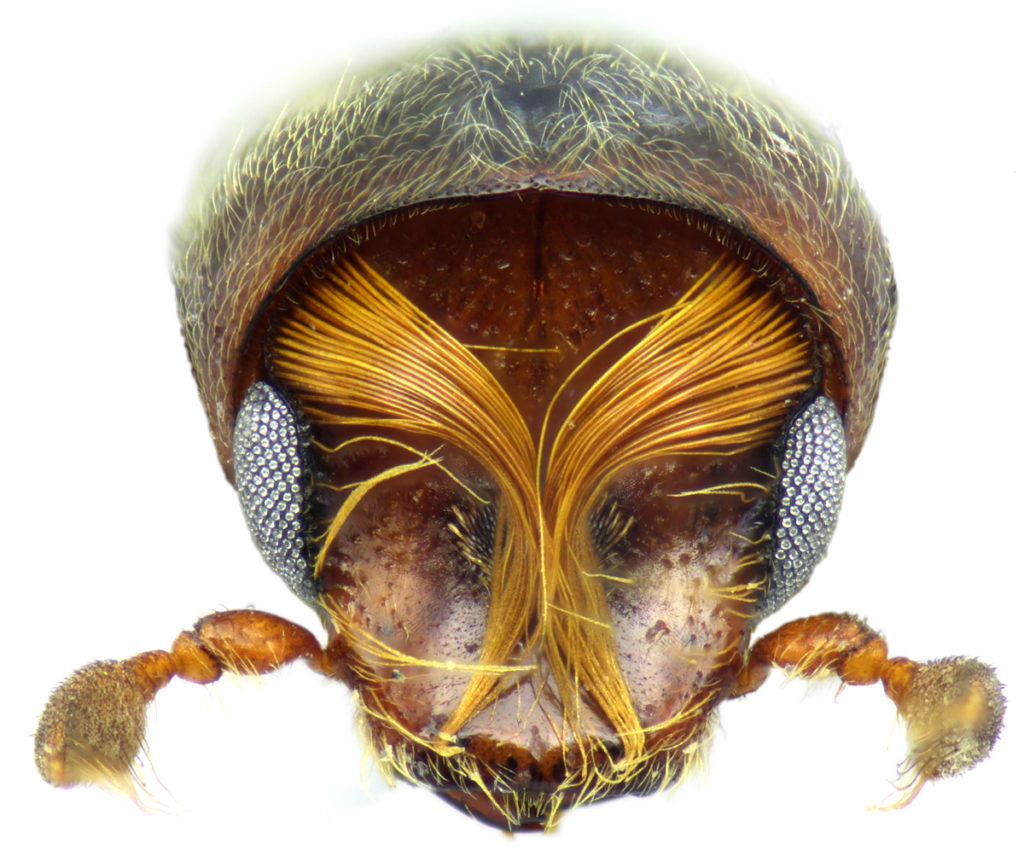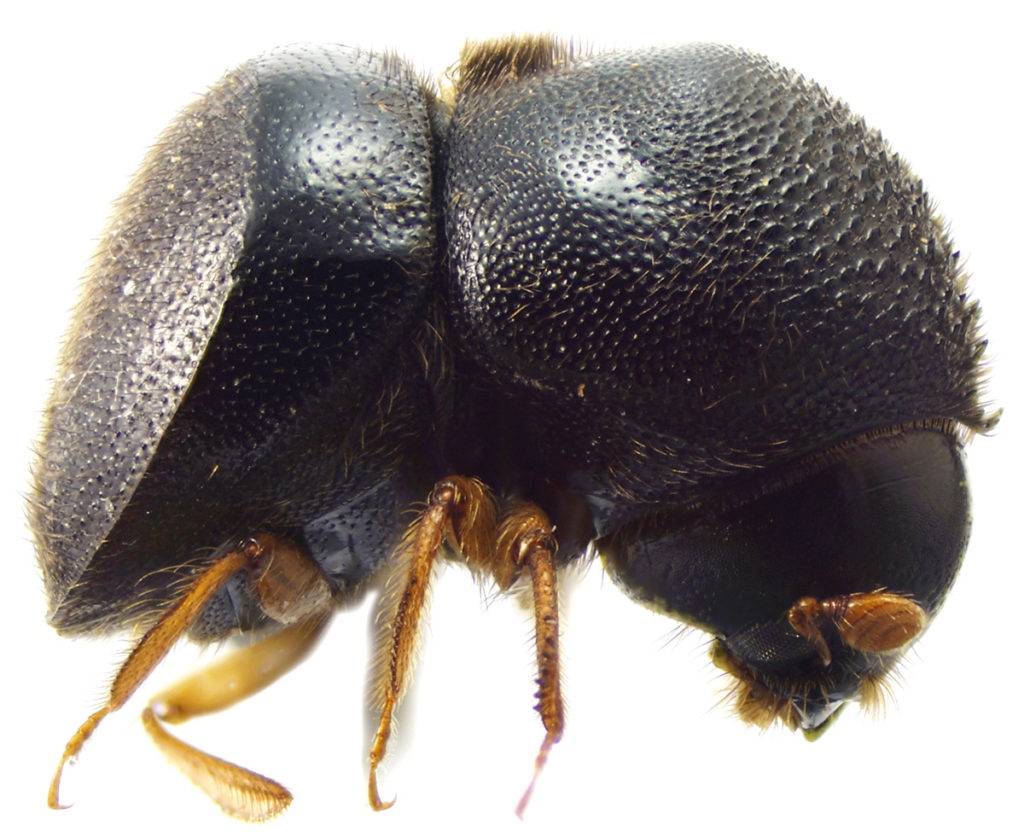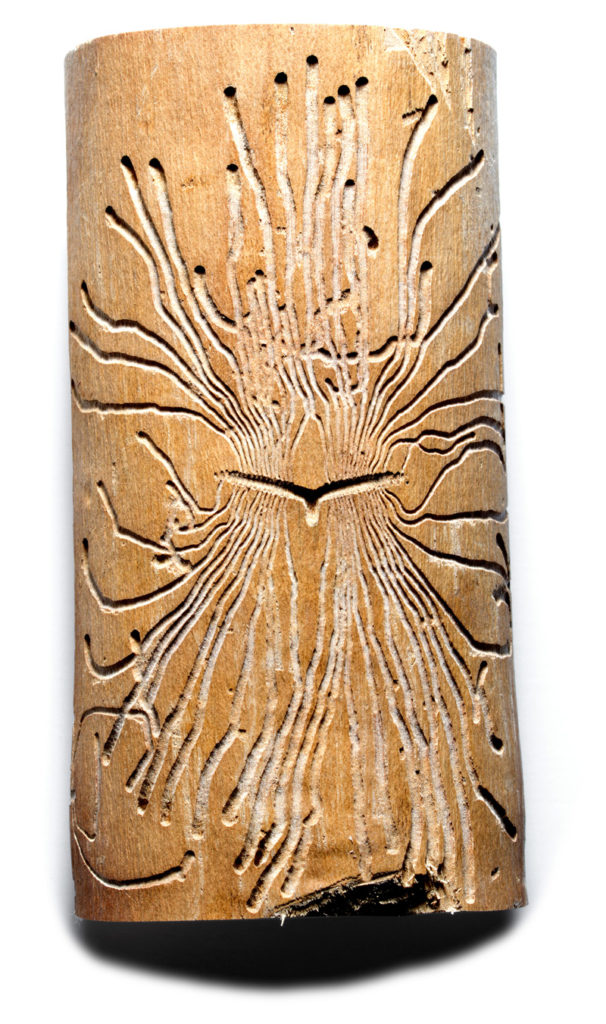University of Florida entomologist Jiri Hulcr loves each of the 6,000 species of bark beetles, and he wants you to appreciate them, too. In a new book, Hulcr makes a case for caring about these tiny foresters.
1. They farm
Bark beetles have a symbiotic relationship with fungus, which they eat but also sow, gathering spores into an orifice called a mycangium and moving them to new locations. (They also steal other beetles’ fungus, which is called mycocleptism.)
2. They have delightful hairdos
The comb-overs and frizzy fringes of female beetles are not only dashing, but play a key role in the “nuptial dance” that precedes mating.
3. They have multipurpose butts
Some have abdomens shaped like bottle stoppers, which they use to plug the holes they drill in trees to keep competitors out. They also fart pheromones.
4. Their homes fooled the art world
Czech artist Hana Nováková made a point about conservation by displaying intricate bark beetle carvings in a gallery and pretending they were art.
5. They’re ecosystem engineers
Bark beetles get a bad rap for destroying forests, which they certainly can, especially when imported by humans to places where the trees lack natural defenses. But in the natural forests they evolved to tend, they’re “an essential force in the long-term health of the ecosystem,” Hulcr writes, weeding out sick and stressed trees and increasing bug and bird diversity.
6. They love alcohol
Some species are so good at smelling the ethanol released by stressed trees that they find it elsewhere, boring holes into plastic gasoline containers in their search for nutrients.
7. They evolved an immunity to caffeine
Coffee berry borers have developed a way around the defenses coffee plants use to deter pests, aka caffeine. The borers, who can neutralize and digest caffeine, have spread beyond their native range through human activity and now threaten coffee harvests worldwide. You don’t have to love bark beetles, but that fact might be proof enough that they’re worth noticing.
“The Surprising Lives of Bark Beetles,” co-authored by Ig Nobel Prize founder Marc Abrahams, was published by University Press of Florida.




